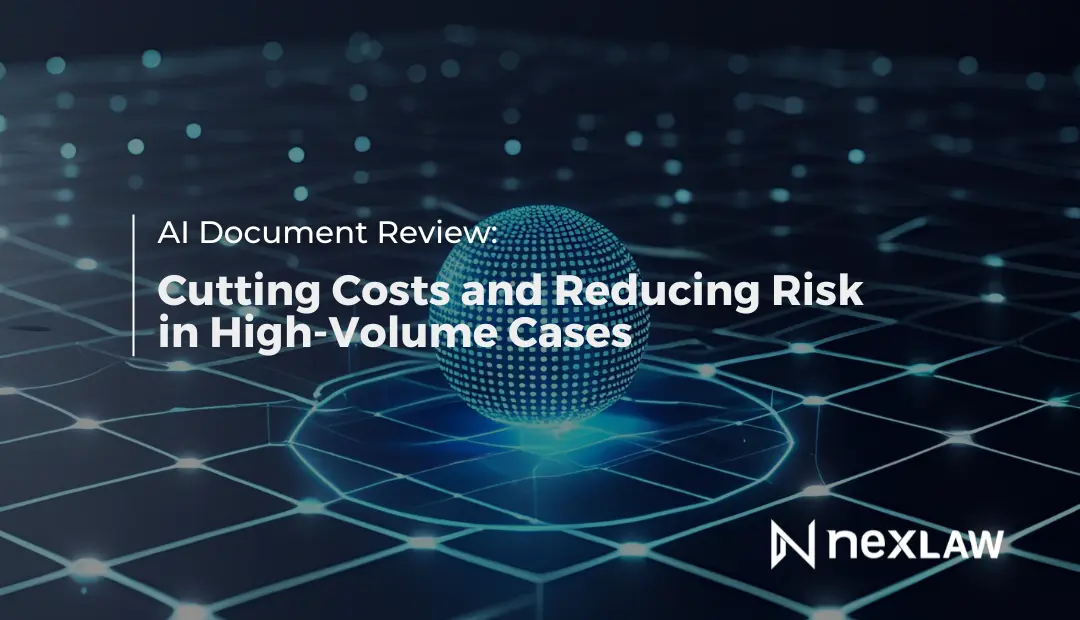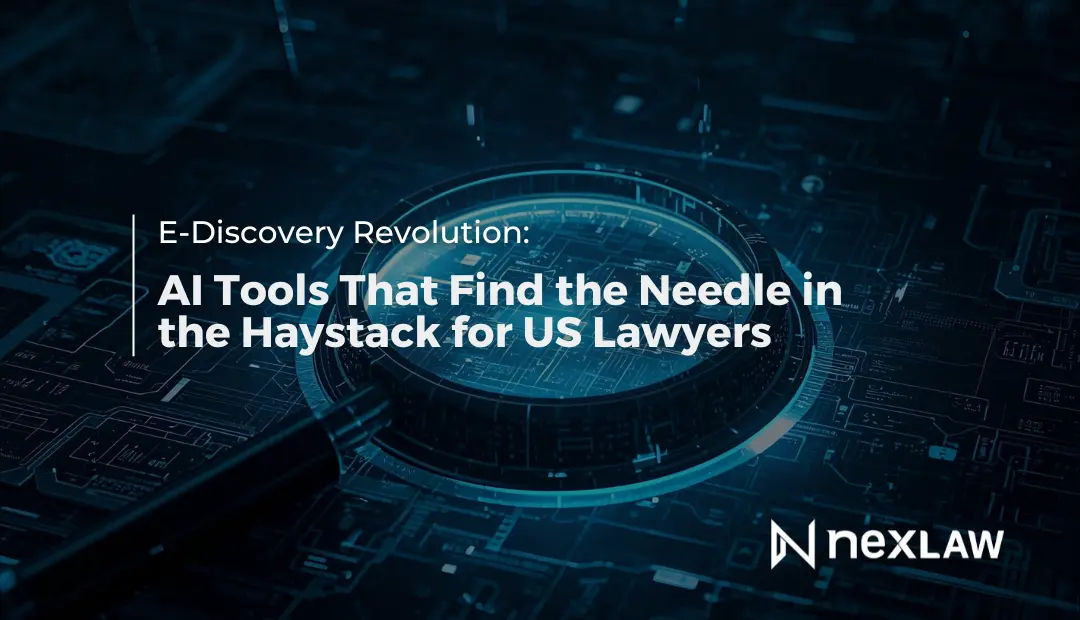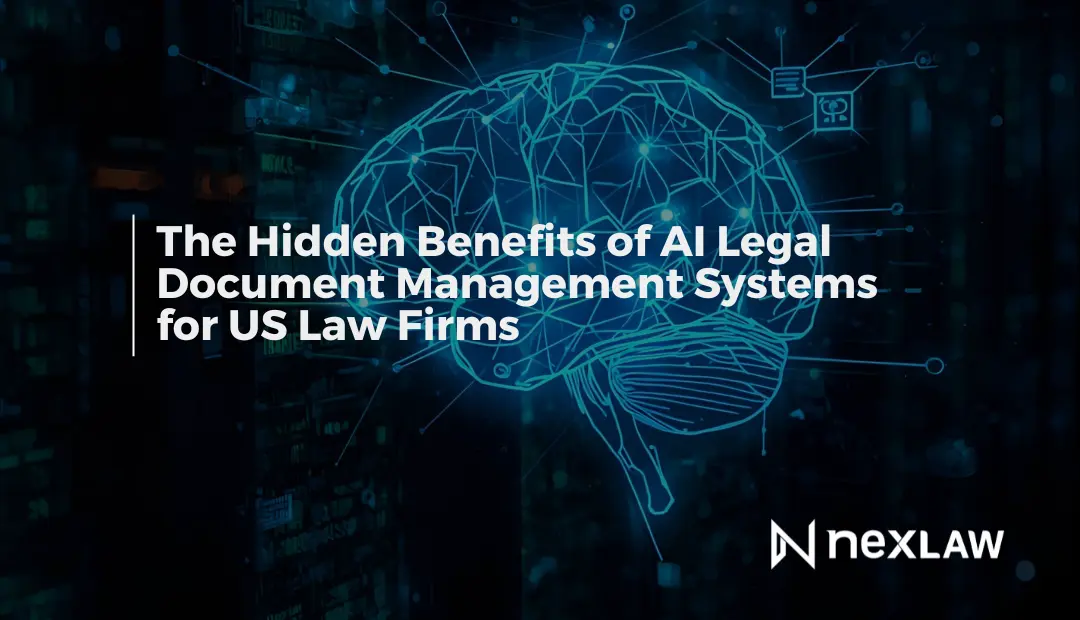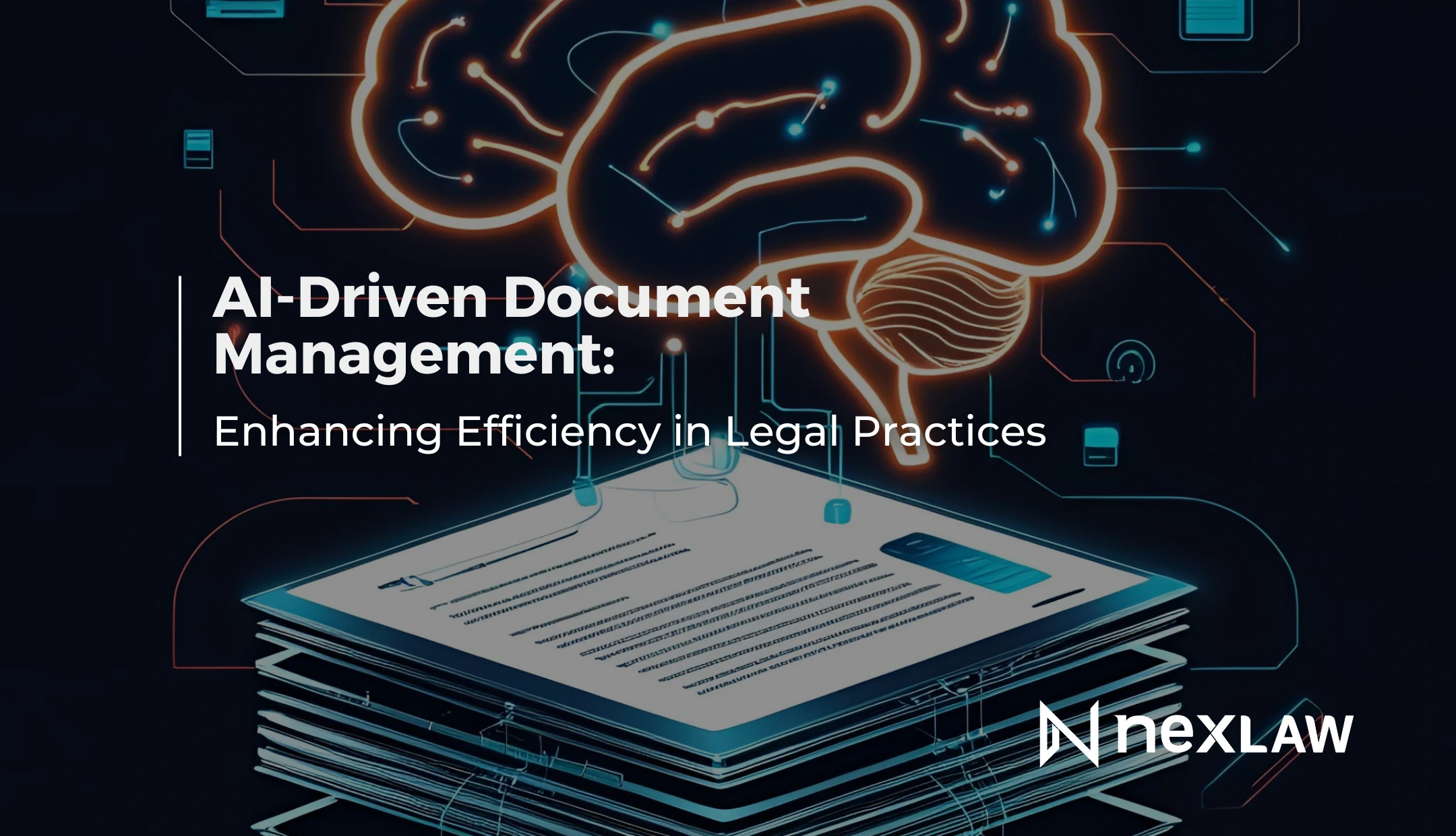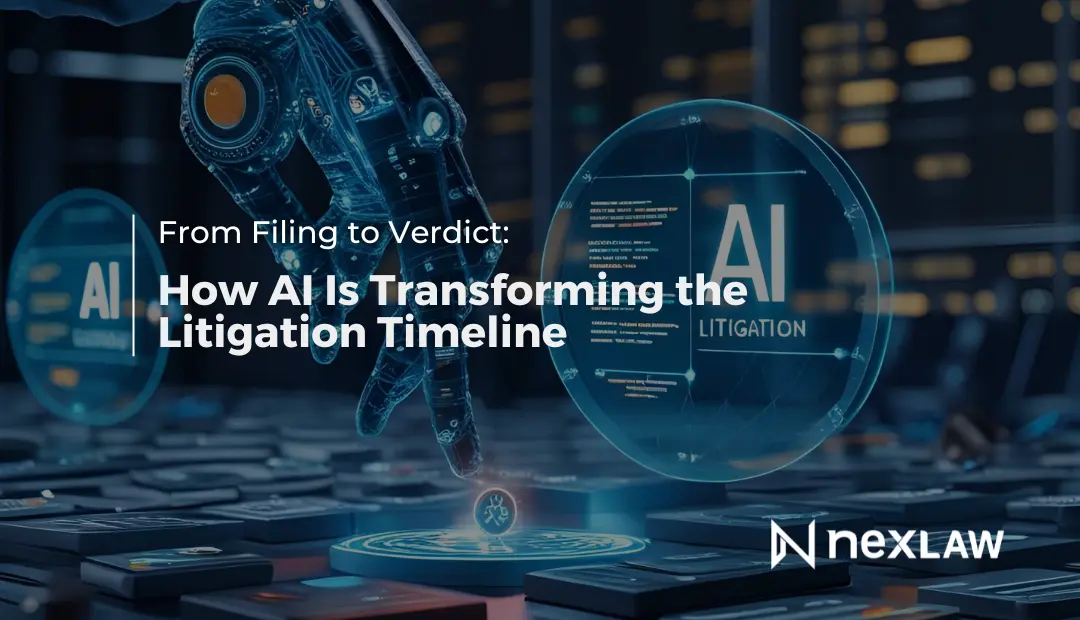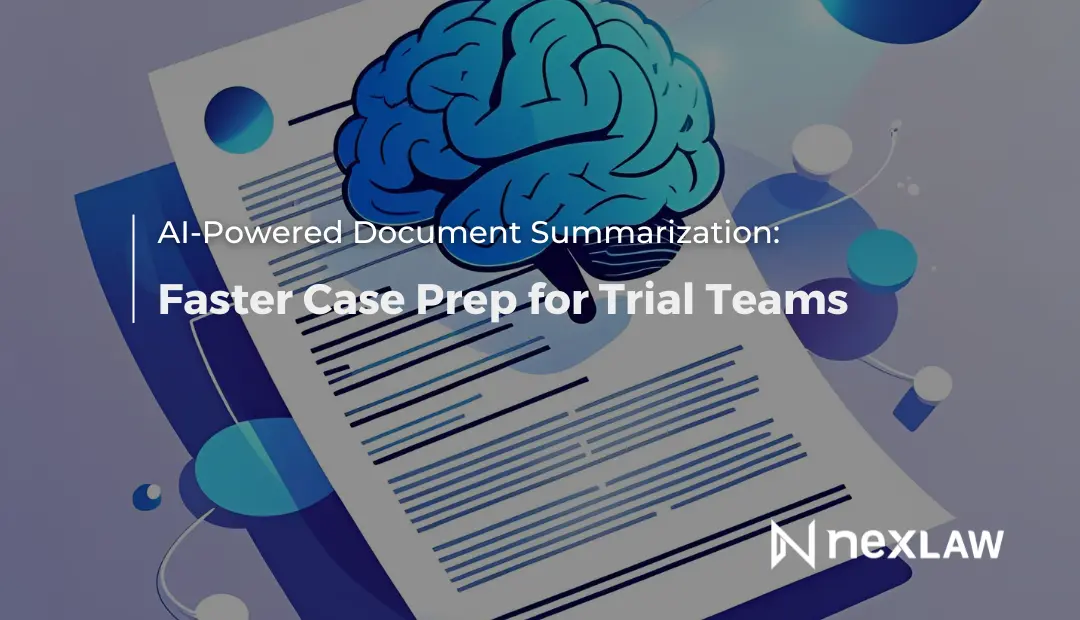AI Document Review: Cutting Costs and Reducing Risk in High-Volume Cases
High-volume litigation presents a fundamental challenge: managing massive document volumes while maintaining quality standards and controlling costs. Traditional document review methods prove inadequate for modern litigation scales, where cases routinely involve millions of documents requiring analysis. AI document review technology transforms this challenge into competitive advantage through dramatic cost reduction and enhanced risk identification capabilities.
Unlock Legal Insights Instantly!
The High-Volume Challenge
Modern litigation generates unprecedented document volumes that strain traditional review methodologies. E-discovery processes often involve massive electronically stored information (ESI) that legal teams must sort through efficiently. Class action lawsuits, regulatory investigations, and complex commercial disputes regularly involve document sets exceeding millions of pages.
Traditional manual review approaches create several critical challenges:
- Scalability Limitations: Human review capacity cannot scale efficiently with document volume increases.
- Cost Escalation: Manual review costs multiply linearly with document volume, creating unsustainable expense structures.
- Quality Inconsistency: Human reviewers demonstrate varying accuracy levels and decision-making consistency.
- Timeline Constraints: Manual review timelines extend proportionally with document volumes, creating strategic disadvantages.
Organizations using specialized AI document review solutions see a 60% reduction in review time and a 30% improvement in risk identification compared to manual processes, demonstrating the quantifiable benefits of technological transformation.
AI Document Review Technology Foundation
AI for legal document review uses artificial intelligence to quickly analyze, sort, and identify key information from legal documents. It streamlines the review process and allows for improved accuracy by using AI to automatically take care of the most time-intensive review work.
Advanced AI document review platforms employ multiple sophisticated technologies:
Machine Learning Algorithms: These systems identify patterns and relationships between documents automatically, learning from reviewer decisions to improve accuracy continuously.
Natural Language Processing: Advanced NLP capabilities analyze and interpret legal text, understanding context and meaning rather than simple keyword matching.
Optical Character Recognition: OCR technology converts scanned or handwritten content into searchable digital text, enabling comprehensive analysis across all document types.
Retrieval-Augmented Generation: RAG systems ground AI-generated responses on external sources for improved quality and accuracy in document analysis.
Cost Reduction Through Intelligent Automation
The financial impact of AI document review proves most dramatic in high-volume cases where traditional methods create exponential cost structures. AI platforms provide linear cost scaling regardless of document volume increases, fundamentally transforming litigation economics.
Direct Cost Reduction: AI systems can now scan, analyze, and extract key clauses from complex documents within minutes—tasks that previously took legal professionals hours or even days. This time compression translates directly into cost savings through reduced billable hour requirements.
Quality Improvement: AI-powered document review enhances accuracy while reducing costs. Advanced algorithms identify relevant documents with greater consistency than human reviewers, reducing costly oversight and re-review requirements.
Resource Optimization: Automated document categorization and prioritization enable strategic resource allocation, focusing human expertise on high-value analysis while AI handles routine document processing.
Scalability Economics: Unlike manual review costs that increase proportionally with document volume, AI platforms provide consistent per-document costs regardless of case size, enabling predictable budgeting for high-volume matters.
Risk Identification and Mitigation
AI document review platforms excel at risk identification through comprehensive analysis capabilities that surpass human review limitations. Advanced systems identify subtle patterns and potential issues that manual review often misses.
Privilege Protection: AI systems automatically identify potentially privileged communications, reducing inadvertent disclosure risks that create significant litigation complications and malpractice exposure.
Hot Document Detection: Advanced algorithms identify documents with high strategic significance or potential adverse impact, enabling immediate attorney review and strategic response planning.
Pattern Recognition: AI platforms detect document patterns that indicate potential compliance violations, fraud indicators, or strategic vulnerabilities requiring immediate attention.
Consistency Enforcement: Automated review decisions eliminate reviewer inconsistency that creates risk exposure through variable document classification and privilege determinations.
NexLaw’s Advanced Document Review Platform
NexLaw’s AI document review platform provides superior capabilities that exceed competing solutions through advanced technology integration and comprehensive workflow optimization. Our platform addresses the complete spectrum of high-volume document challenges through unified technological solutions.
Superior Accuracy: NexLaw’s algorithms achieve 95%+ accuracy in document classification and relevance determination, surpassing both manual review and competing AI platforms.
Comprehensive Analysis: Our platform performs multiple analysis types simultaneously—relevance, privilege, confidentiality, and strategic significance—within single processing workflows.
Custom Model Training: NexLaw enables law firm-specific model development that incorporates practice area expertise and historical case patterns for enhanced accuracy.
Integrated Quality Control: Built-in quality assurance systems provide continuous accuracy monitoring and improvement recommendations throughout review processes.
Unlike competing platforms that require multiple tools for comprehensive document analysis, NexLaw provides unified solutions that eliminate integration complexity while delivering superior analytical capabilities.
Strategic Applications Across Practice Areas
AI document review technology proves valuable across diverse practice areas, with specific applications tailored to unique requirements:
Complex Commercial Litigation: Multi-million document contract disputes benefit from AI’s ability to identify relevant agreements, correspondence patterns, and compliance documentation efficiently.
Regulatory Investigations: Government investigations requiring comprehensive document production leverage AI’s capability to identify responsive documents while protecting privileged communications.
Class Action Defense: Mass tort and product liability cases involving extensive discovery benefit from AI’s scalability and pattern recognition capabilities.
Merger and Acquisition Due Diligence: Transaction-related document review leverages AI’s speed and accuracy for comprehensive risk assessment and opportunity identification.
Implementation and Workflow Integration
Successful AI document review implementation requires strategic planning that maximizes technological benefits while integrating seamlessly with existing litigation workflows and quality control processes.
Data Preparation: Effective AI implementation begins with proper data organization and preprocessing that optimizes algorithmic performance and analytical accuracy.
Quality Control Integration: AI platforms must integrate with existing quality assurance processes, providing transparency and oversight capabilities that maintain professional responsibility standards.
Team Training: Comprehensive training ensures legal professionals understand AI capabilities and limitations, enabling optimal utilization while maintaining professional judgment requirements.
Continuous Optimization: Ongoing performance monitoring and model refinement ensure sustained accuracy improvement and cost optimization throughout extended litigation proceedings.
Measuring ROI and Performance Impact
Organizations implementing comprehensive AI document review report substantial performance improvements across multiple metrics:
- Cost Reduction: 60-75% reduction in document review expenses
- Timeline Acceleration: 70-80% reduction in review completion time
- Quality Enhancement: 30-40% improvement in relevant document identification
- Risk Mitigation: 50-60% reduction in privilege and confidentiality violations
These improvements translate into competitive advantages through reduced client costs, accelerated case timelines, and enhanced risk management capabilities.
Ethical Considerations and Professional Responsibility
AI document review implementation must address professional responsibility requirements regarding competence, supervision, and client protection. As of 2025, there are 16 state bars that have addressed or are planning on addressing AI and legal ethics, with all ethics opinions discussing lawyers’ supervisory duties related to AI use.
Competence Requirements: Attorneys must understand AI platform capabilities and limitations to ensure competent representation and appropriate technology utilization.
Supervision Obligations: Professional responsibility standards require appropriate oversight of AI review decisions, similar to paralegal supervision requirements.
Client Confidentiality: AI platform selection must ensure robust data security measures that protect client confidentiality and comply with professional responsibility requirements.
Quality Assurance: Systematic quality control processes ensure AI review decisions meet professional standards while maintaining efficiency benefits.
Future Developments and Strategic Positioning
AI document review technology continues evolving toward greater sophistication and expanded capabilities. Agentic AI systems will enable autonomous document review workflows that require minimal human oversight while maintaining quality standards.
Early adopters of advanced AI document review establish sustainable competitive advantages through superior cost structures, enhanced quality capabilities, and client service differentiation. Firms implementing comprehensive platforms position themselves for continued technological advancement while building expertise that sustains market leadership.
Client Value Proposition and Market Differentiation
AI document review provides a compelling client value proposition through demonstrable cost savings, enhanced quality, and accelerated timelines. Modern clients expect technological sophistication that delivers measurable benefits in high-volume litigation scenarios.
Transparent Cost Management: AI-enabled predictable pricing structures provide clients with budget certainty while demonstrating firm technological sophistication.
Quality Assurance: Enhanced accuracy and risk identification capabilities provide superior client protection and case outcome optimization.
Timeline Optimization: Accelerated document review timelines enable faster case resolution and reduced overall litigation costs.
Transform Your Document Review Practice
AI-powered document review isn’t just faster, it’s smarter, more cost-effective, and strategically superior. In high-volume litigation, firms that automate review gain a measurable edge in accuracy, speed, and client satisfaction.
NexLawAI streamlines review with intelligent automation:
- NeXa AI Assistant – Extracts facts, flags risks, and classifies documents at scale with minimal human input.
- TrialPrep – Uses reviewed materials to shape strategy, link evidence, and support key legal arguments.
- ChronoVault – Organizes reviewed documents into timelines and themes for faster case analysis and story-building.
Book a Demo – See how NexLaw transforms high-volume document review.
Explore Plans – Includes a free 3-day trial to experience smart review automation.
GET 15% OFF for annual plans using promo code: ANNIV15MONTHLY or ANNIV15ANNUALY | Offer valid until August 31, 2025
